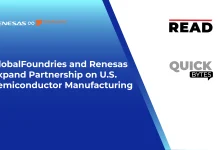Advent Technologies Holdings, Inc. and BASF New Business GmbH recently signed a Memorandum of Understanding. The agreement aims to develop and increase the manufacturing scale of advanced fuel cell membranes designed for long-term operations under extreme conditions. BASF intends to improve the long-term stability of its Celtec membrane and to increase production capacity with advanced technical capabilities to enable further improved and competitive Advent fuel cell systems and membrane electrode assembly (MEA).
Under the agreement the two companies will explore the implementation of high-volume manufacturing for the Celtec membranes, utilize Advent’s fuel cell stack and system testing facilities to assess and qualify the new Celtec membrane for the SereneU (telecom power), M-ZERO, (methane emissions reduction), and Honey Badger (portable power, defense) Advent product families. Furthermore, BASF supports the realization of large-scale Important Projects of Common European Interests (IPCEIs) White Dragon and Green HiPo (pending EU approval), through materials for power generation, hydrogen generation, and power storage. The goal of the two projects as submitted by Advent and the White Dragon consortium of companies is to replace Greece’s largest coal-fired power plants with renewable solar energy parks, which will be supported by CO2-free hydrogen production (4.65GW), and fuel cell heat and power production (400MW). In addition, BASF will also evaluate the producibility of the ion pair membrane developed in collaboration by Advent and the US Department of Energy.
Advent Technologies’ Chairman and CEO Dr. Vasilis Gregoriou commented, “The MEA is the heart of the fuel cell, determining the overall system performance. Our high temperature polymer electrolyte membrane-based MEA is a critical component used in fuel cells and other electrochemistry applications such as CO2-free hydrogen production, and energy storage. The agreement with BASF advances our vision to accelerate electrification through advanced materials, components, and next-generation fuel cell technology and to support industries in decarbonizing at a faster rate.”




